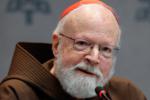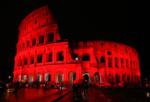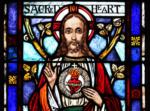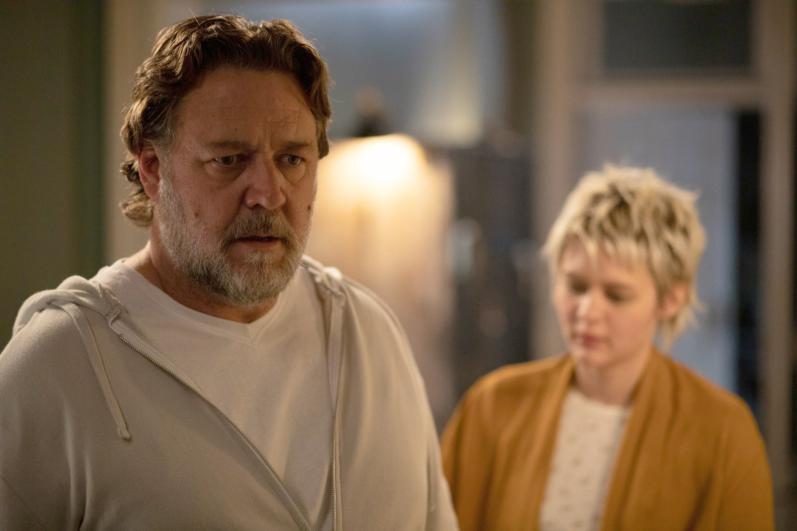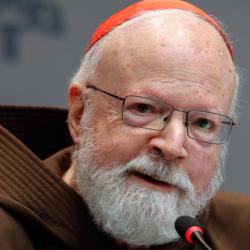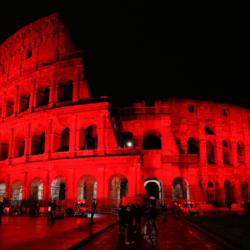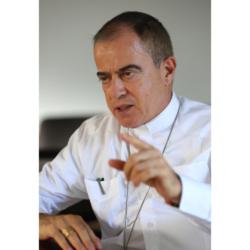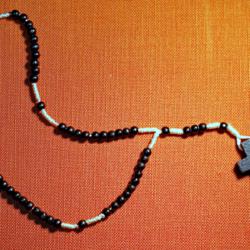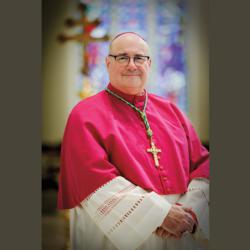The Exorcism
NEW YORK (OSV News) – If the devil comes a-calling, you may need an electrician, because Moloch and his ilk have the power to make lights turn on and off at their bidding. Such is one of the primary takeaways from the often-silly horror flick "The Exorcism" (Vertical).
Another lesson the film tries to instill is that remaking 1973's "The Exorcist" would not be a good idea. Drawing on rumors about the mysterious problems that are said to have plagued that production, the script, which director Joshua John Miller co-wrote with M.A. Fortin, plunges star Russell Crowe into the spiritual maelstrom of just such a project.
Crowe plays well-known but down-on-his-luck actor Anthony Miller. On the rebound from the descent into alcoholism that resulted from his wife's fatal struggle with cancer, Anthony hopes being cast as a priest in the movie-within-a-movie will serve as his shot at a comeback.
As early scenes show us, his predecessor in the role died suddenly -- and not as the result of natural circumstances.
Even as he tries to get his career back on track, Anthony is also working to repair his relationship with his semi-estranged teen daughter, Lee (Ryan Simpkins). In a habit symptomatic of their frayed bond, she consistently calls him Tony rather than Dad.
Anthony's good intentions fail to pay off, however, since the shoot as a whole seems cursed and he begins showing signs of needing the rite of the title himself. This leaves cynical Lee bewildered and Father Conor (David Hyde Pierce), the real-life cleric hired to advise on set, almost equally befuddled.
Miller and Fortin seem unable to decide what they think of the church. Though kindly enough, and endowed with an Ivy League degree in psychology, Father Conor is mostly a nebbish.
As for ex-altarboy Anthony, he is, with painful predictability, identified as a survivor of clergy sexual abuse. Yet the proceedings are almost bookended by sequences showing him in the confessional.
In the first of these, he acknowledges that it's the first time in 40 years that he's availed himself of the sacrament. He subsequently returns to it with almost absurd rapidity.
If the doubts about religion smugly expressed by Lee are ultimately refuted by plot developments, moreover, it's only in order to set up a special effects-driven metaphysical showdown between the Father of Lies on the one hand and God and his angels on the other.
Ultimately, the screenplay seems to grant a residue of reality to Catholic beliefs, but only so that they can be harnessed for the filmmakers' own purposes. These include having Lee's discreetly portrayed affair with Anthony's co-star, Blake (Chloe Bailey), receive Father Conor's momentary but unambiguous blessing.
The same schizophrenia is discernible on a strictly cinematic level. The labored picture's content veers from over-the-top takes on possession genre tropes to attempts at serious drama -- during a couple of which Crowe's talent briefly glimmers. Overall, though, "The Exorcism" is a murky mess.
The film contains brief but intense gory violence, gruesome images, mature themes, including clerical sexual abuse, drug use, implicit endorsement of homosexual acts, same-sex sensuality, about a half-dozen uses of profanity, at least one milder oath, pervasive rough language and several crude expressions. The OSV News classification is L -- limited adult audience, films whose problematic content many adults would find troubling. The Motion Picture Association rating is R -- restricted. Under 17 requires accompanying parent or adult guardian. - - -CAPSULE REVIEW"The Exorcism" (Vertical)On the rebound from the descent into alcoholism that resulted from his wife's fatal struggle with cancer, a well-known actor (Russell Crowe) hopes being cast as a priest in a remake of 1973's "The Exorcist" will be his shot at a comeback. But the project seems cursed and he begins showing signs of needing the rite of the title himself, much to the bewilderment of his semi-estranged teen daughter (Ryan Simpkins) and the real-life cleric (David Hyde Pierce) hired to advise on set. Director and co-writer Joshua John Miller's labored horror flick veers from over-the-top takes on possession genre tropes to attempts at serious drama during a couple of which Crowe's talent briefly glimmers. If the doubts about religion expressed by Simpkins' character are ultimately refuted by plot developments, it's only in order to set up a special effects-driven metaphysical showdown before which the screenplay incorporates an informal priestly blessing of her discreetly portrayed lesbian relationship (with Chloe Bailey). Brief but intense gory violence, gruesome images, mature themes, including clerical sexual abuse, drug use, implicit endorsement of homosexual acts, same-sex sensuality, about a half-dozen uses of profanity, at least one milder oath, pervasive rough language, several crude expressions. The OSV News classification is L -- limited adult audience, films whose problematic content many adults would find troubling. The Motion Picture Association rating is R -- restricted. Under 17 requires accompanying parent or adult guardian.- - -CLASSIFICATION"The Exorcism" (Vertical) – OSV News classification, L -- limited adult audience, films whose problematic content many adults would find troubling. Motion Picture Association rating, R -- restricted. Under 17 requires accompanying parent or adult guardian.- - - John Mulderig is media reviewer for OSV News. Follow him on X (formerly Twitter) @JohnMulderig1.



